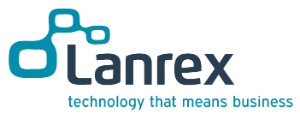As you continue to adopt the new technology that barrels toward businesses of every size, you have probably started to discover the accompanying risks that tend to follow on technology’s heels.
Make no mistake: joining the digital age is vital to the success of your business, but the connectivity of technology is fraught with threats of data breaches and other risks that could cause the exposure of your company’s sensitive data — including confidential information about your customers and employees — to criminal elements.
Sometimes data breaches are strictly the work of relentless hackers from around the world. However, sometimes the threat is far closer to home. Sometimes your employees — most often unintentionally — create the very risks that might endanger your business.
Do Your Employees Understand the Risks?
Perhaps you have noticed an uptick in notifications of vulnerabilities, or your organisation has suffered a damaging data breach. Under either of those circumstances — or ideally, just as a matter of prevention — it may be time to make sure your employees understand the need to comply with appropriate email messaging practices to protect your company’s digital assets.
Developing a set of policies and guidelines, based on known risks that could lead to risking your company’s reputation and expensive legal costs, is a good way to help your employees understand the risks of emailing data outside your business and how they can help to avoid them.
Why Is It So Crucial that You Find Solutions?
Foremost, it is important to create and enforce a code of computing conduct with which everyone complies to ensure data security across the board. Besides letting you rest easier without worrying about a virus or some other systemic invasion, it is simply good business practice to lay out expectations of behaviour to employees and have them follow through.
There are a few additional key reasons to develop solutions that are unique to your organisation to allow you to optimise engagement and get your house in order so that emailing data outside is no longer a worry.
-
Numerous Vulnerabilities Lie in Wait for Your Organisation’s Computing System
Sometimes it is difficult to imagine all the possible vulnerabilities that may threaten your company’s data, particularly when the threat is on the payroll.
Think about a few of the following most commonly experienced data perils you may face when your employees let their obligations slip:
- Password Attacks. Almost 99 percent of organisations and home users continue to rely heavily on passwords as a means of authentication to allow entry to their email accounts, cites TechGenix. There are many ways that password usage may leave your business open to risks, such as through insecure maintenance of the password system, poor or insufficient password selection by employees, or the network transfer process itself.
- Data Leakage. Unencrypted and unfiltered emails can lead to data leakage, which has become a common threat in both private industry and government organisations over the past several years. It is estimated that employees unintentionally cause more than 90% of the data leakages.
- Malware. Many employees may think that malware is only a risk when visiting certain websites. However, there are a few unique ways that a virus can work its way into a computer via a rogue email. Most people are familiar with the much-publicised email attachment method, wherein the cyber-criminal attaches an executable file that, when the program is clicked to open or download, it begins to do its damage. The other way that malware poses a risk when emailing is through rich text, which may be exploited to send unauthorised messages.
- Phishing Attacks. Phishing attacks made their first appearance in 1995 and have undergone several iterations since that time, but do not be complacent; phishing is still aroundand shows no signs of disappearing. These digital data attacks prey on the trusting nature or distractedness of email recipients. These particular hackers pose as a legitimate institution when sending out an email to lure individuals into easily providing sensitive data, such as personally identifiable information (PII), banking and credit card details, and passwords.
With so many potential threats to your data, it may prove challenging to keep your employees up-to-date on the ever-evolving nature of these risks and how you can all mindfully and actively work to avoid them.
-
Some Businesses Require a Certain Level of Data Security to Engage in Business
You may have certain business associates or third-party service providers that insist on certain levels of data security, such as cloud-based insurance broking software providers. Such programs you select for your organisation may involve considerable exchanges of sensitive data via email and other methods that may leave both your business and theirs vulnerable to attacks.
Avoid losing out on valuable business associations by shoring up your emailing protocols.
How Can You Ensure Consistently Appropriate Emailing of Digital Assets Outside Your Business?
In some circumstances — and given the awful tenacity of hackers who continually search for new ways to infiltrate systems — it may seem like all the training sessions and reinforcement memos in the world may not reach certain staff when it comes to emailing data outside the firm.
There is a bold, comprehensive, and user-friendly solution available to you with Lanrex. Our 4-Stage Business Diagnostic lays out all the ways we strive to ensure the best business outcomes through a wide range of supported services.
Helping you avoid identity-based threats, identifying employees who send sensitive data outside the company via email, and developing a solid password strategy — these are only the beginning.
Contact us to let us know how we can help you improve your security, connectivity, productivity, hardware, and more.

We’re creating a business that provides unlimited potential for our team. We believe that each and every team member has an equal opportunity to play a strategic and impactful role.
GET IN TOUCH